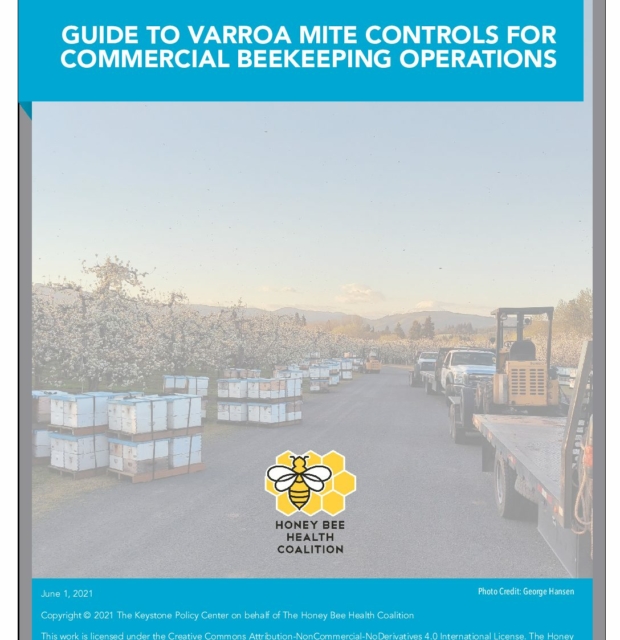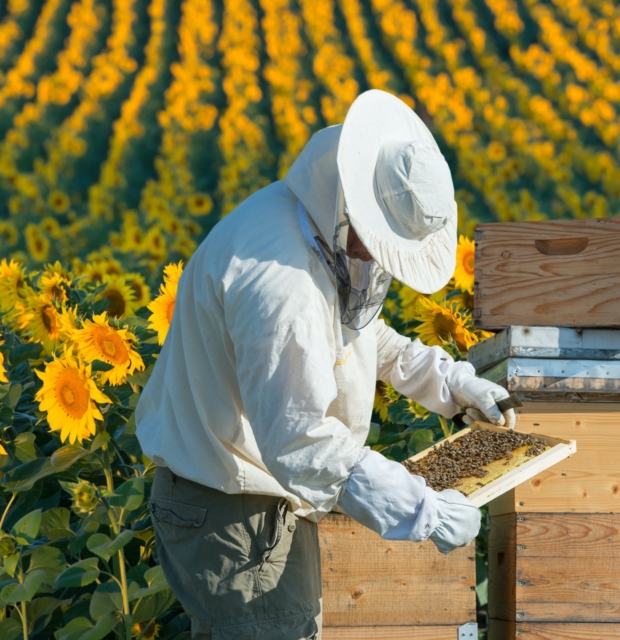News
Collaboration and Cross-Pollination
The Honey Bee Health Coalition has been hard at work through the first two months of 2017. From a strong showing at the North American Beekeeping Conference in Galveston, Texas, to the upcoming National Pheasant Fest & Quail Classic Pollinator Symposium in Minneapolis and Commodity Classic in San Antonio, the Coalition has been connecting with beekeepers, farmers, conservationists, and other key stakeholders across the country. The Coalition also has been working behind the scenes to ensure beekeepers and other key stakeholders are engaged in the group’s work and widely sharing its resources.
The Coalition has made important progress this year so far. We look forward to continuing to keep the momentum going — and to make 2017 the Coalition’s best year yet for supporting honey bee health.
How We Work
 Honey bees are uncanny creatures — capable of incredible feats through coordination and shared purpose. In many ways, the Honey Bee Health Coalition mirrors this approach. Every member, from beekeepers and farmers to NGOs and the largest businesses, band together and act in concert to improve honey bee health.
Honey bees are uncanny creatures — capable of incredible feats through coordination and shared purpose. In many ways, the Honey Bee Health Coalition mirrors this approach. Every member, from beekeepers and farmers to NGOs and the largest businesses, band together and act in concert to improve honey bee health.
This has been the case since the Coalition’s members came together for the first time three years ago. This approach has remained unchanged and a source of admiration and curiosity from our partners and others — prompting questions of how the Coalition has been able to work together on shared goals.
The key has been the Coalition’s foundational working agreement — its charter — which highlights the group’s dedication to science-based decision making and working toward consensus. The Coalition’s members might not agree on everything, but they know that working toward and investing in areas of agreement can yield tremendous progress.
None of the Coalition’s accomplishments would have occurred without its members’ work and support for its shared purpose and goals. It has been vitally important that each member has an equal voice regardless of their financial or in-kind support for the Coalition. This approach, supported by the Coalition’s facilitators from the Keystone Policy Center, enhances the Coalition’s consensus-based decision-making process.
In case you, your members, or your partners have any questions, feel free to point them the Coalition’s website, honeybeehealthcoalition.org, and the charter, honeybeehealthcoalition.org/charter.
Pollinator Symposium

The Honey Bee Health Coalition continues to lead the discussion on strategies to support pollinator health and promote dialogue at important conferences. Through the day on Friday, Feb. 17, Coalition members will host sessions at the National Pheasant Fest & Quail Classic Pollinator Symposium in Minneapolis.
Coalition member presentations include the following (the full schedule is available by clicking here or on the image to the right.)
- 12:45 p.m. – Pollinators as the glue that binds birds, habitat, precision agriculture, water quality, and a broader audience. (Peter Berthelsen, Director of Habitat Partnerships, Pheasants Forever, Inc.)
- 1:35 p.m. – Enhancing pollinator health in the agricultural landscape. (Caydee Savinelli, Pollinator and IPM Stewardship Lead, Syngenta)
- 2:10 p.m. – Bee Integrated: Integrating habitat and best management practices into one effort to improve bee health. (Keri Carstens, Senior Manager, Integrated Product Research & Stewardship, DuPont/Pioneer)
- 2:25 p.m. – Improving forage for honey bees and native pollinators in the Northern Great Plains. (Clint Otto, Research Ecologist, Northern Prairie Wildlife Research Center)
- 3:35 p.m. -What do the bees need now: A 21st Century approach to beekeeping and habitat development. (Zac Browning, Co-Owner & Operator, Browning Honey Co, Inc.)
Commodity Classic
The Coalition is planning to attend the Commodity Classic in early March in San Antonio, Texas, and looking forward to continuing to connect with beekeepers, farmers, and others working to promote honey bee health. If you are planning to attend the show, please find the Coalition’s booth — number 448 — stop by and say hello, and share a photo on social media.
Coalition Attends NABC, Discusses Nutrition Supplements
 The Coalition was out in force at the North American Beekeeping Conference in Galveston, Texas, in early mid-January. Coalition members led numerous presentation and break-out sessions covering issues ranging from Project Apis m.’s work over the past decade to Varroa mite management to research findings on honey bee nutrition and forage.
The Coalition was out in force at the North American Beekeeping Conference in Galveston, Texas, in early mid-January. Coalition members led numerous presentation and break-out sessions covering issues ranging from Project Apis m.’s work over the past decade to Varroa mite management to research findings on honey bee nutrition and forage.
Also in Galveston, the Coalition conducted interviews with more than 30 commercial beekeepers to gather insights, knowledge, and perspectives related to honey bee nutritional supplements. These insights will be synthesized and shared this year as actionable recommendations to inform future development and research. This effort is part of the Coalition’s forage and nutrition priority area, through which the Honey Bee Health Coalition aims to advance pre-competitive solutions and research addressing honey bee nutrition.
Congratulations, too, to Coalition member George Hansen whose bee art won the best in show award at the Conference.
Promoting Best Practices
The Coalition has made important progress in helping educate farmers and others on how they can control crop pests without adversely affecting honey bee health. The Coalition has developed an incident-reporting guide to help beekeepers report pesticide-related bee-kill incidents and hosted a symposium on managed pollinator protection plans in partnership with the National Association of State Departments of Agriculture, U.S. Department of Agriculture, and the Environmental Protection Agency.
Building on this progress, the Coalition is in the process of working with the United Soybean Board and a variety of stakeholders to identify and promote best management practices to support honey bee health in the context of production agriculture. Stay tuned for more info later this year
Hive Lights Spotlight on Varroa
The Coalition’s Tools for Varroa Management has helped thousands of beekeepers learn best practices for detecting and controlling Varroa mites. Its reach has extended as far away as New Zealand and led to the debut of a series of demonstration videos to help beekeepers deal with these challenging parasites.
The guide’s international attention grew this month when the venerable Canadian Honey Council highlighted it in its widely read Hive Lights magazine. In case you have not utilized the guide or videos check them out at honeybeehealthcoalition.org/varroa.
The Coalition also knows accessing the guide online could be a challenge when beekeepers are working in the field. That’s why it also created a link to download the guide and videos for use on your tablet or phone: honeybeehealthcoalition.org/varroadownload.

